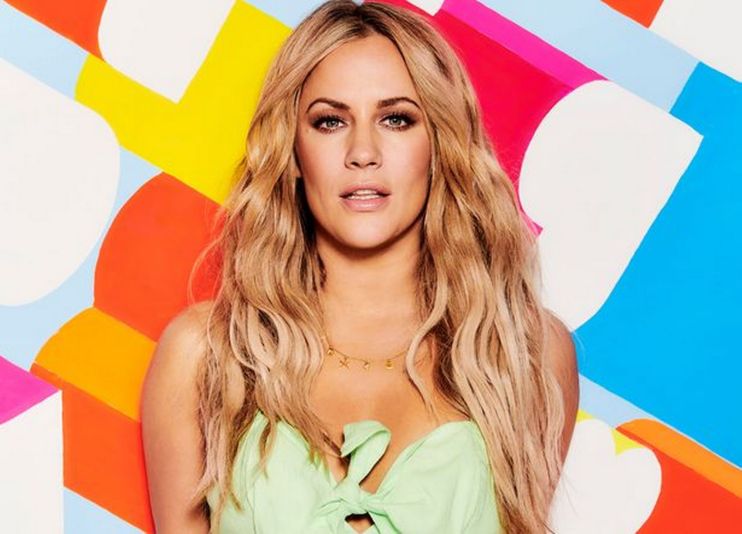Caroline Flack’s death shows ‘cancel culture’ has to stop – and it’s up to us to stop it

I was shocked to hear of the death of television presenter Caroline Flack. I didn’t know her – but I didn’t have to. There were plenty of stories dissecting her relationships, her wardrobe and her career. She had 1.9m followers on Twitter and 2.4 on Instagram, but died alone, facing an assault trial that was not supported by her boyfriend and alleged victim, Lewis Burton. She had been sacked from Love Island, a show she had fronted for five years, and vilified by the tabloids, who as of Sunday were furiously back-pedalling, deleting stories and tweets which many believe led directly to her suicide – a move known in the media as a ‘reverse ferret’. Yesterday’s stories aren’t today’s chip wrappers any more: they are retweeted and shared, a swarm of angry wasps stinging again and again. The result is public shaming. This is ‘cancel culture’. And it has to stop.
Beneath the glamorous facade, people forget that celebrities are human too. Caroline, like others before her, became almost dehumanised by the Twitter lynch mobs who took so much pleasure from attacking her. This new world of reality TV quickly dehumanises and demeans those who take part, exposing them to a level of public scrutiny that is almost impossible to bear. This goes right back to the beginning of reality television, with Big Brother’s Jade Goody the figure of hate. Revelling in her descent into despair, the public only did an about turn after producers started editing the show in her favour.
In today’s social media-addicted world, we have a bully in the White House, and women in particular are subjected to horrific misogynistic abuse on social media, including rape threats. The same people who criticised Caroline are finger pointing and hand wringing, naming ITV, the CPS, even specific journalists – fairly or unfairly – for the “manslaughter” of a much-loved celebrity. Within 24 hours of her death there were almost 50 online petitions on change.org calling for closure of The Sun newspaper, closure of all newspapers, a judicial review, cancellation of Love Island, and changes to social media legislation. One petition for a government inquiry into the British press has gathered more than 61,000 signatures.
Her management company has blamed the CPS, rather than the show that has seen three of its stars take their own lives… and also write them rather large cheques. This is a terrible tragedy, but it is not the fault of the CPS. She would have been given a fair trial by an impartial court, and would have had access to defence counsel. If we declined to prosecute anyone who was distressed by the charges, no one would ever go on trial.
The Crown Prosecution Service has rules, set out in the Code for Crown Prosecutors. These guide its lawyers to a decision on whether or not to pursue a case. The first is evidential: is there a “realistic prospect of conviction”? Clearly, in Caroline’s case, they decided there was. The second test is that of public interest: is it in the public interest to seek a prosecution and, ultimately, a conviction? The weight of assumption will be that it is, so there would have to be strong mitigating factors to drop a suit. These are the rules that prosecutors must, as public servants, follow. It is not a capricious game of “Will we, won’t we?”
In my opinion, her management’s criticism is disgusting, naive and disgraceful. We have to prosecute allegations of domestic violence even when the alleged victim declines to support the prosecution, if we are serious about tackling this problem. Otherwise we go back to the bad old days where the abuser almost certainly gets away with it.
What they should have done is responded to the recriminations and tawdriness of the unfolding story with dignity and restraint. It would have been a fitting tribute to Caroline, and would have demonstrated grace and poise. They could have allowed the oxygen for a measured debate on the toxicity of the celebrity world, in which every party examined its own conscience – because there is enough blame for everyone. We will not run short.
We can’t sit in our Twitter glass houses and throw stones at the CPS, ITV, or the tabloids. Look at your own Twitter feed. How many times have you said something mean that you wouldn’t say to that person’s face? How many times have you retweeted something that could be seen as bullying, just because it was “funny”? We are all individually responsible for creating an online community which condones, even encourages, bullying, petty-mindedness and hate. Just last week on my Media Masters podcast, chairman of Cannes Lions Philip Thomas said he had been speaking to Facebook and Google to launch a campaign to make the internet a kinder place. It’s been a long time coming.
We should all remember, as Caroline herself once said, to be kind.